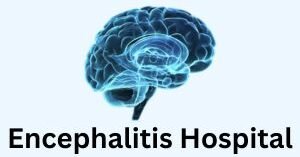Encephalitis, a condition characterized by inflammation of the brain, can have a profound impact on a person’s life. Whether you or a loved one have recently been diagnosed or are navigating the long-term effects of this condition, understanding how to manage life with encephalitis is key to maintaining hope, health, and quality of life. At Encephalitis Hospital, we are committed to supporting patients and families through every stage of their journey. In this blog post, we’ll explore practical strategies for living with encephalitis, from managing symptoms to rebuilding strength, and how our specialized care in the United States can make a difference.
Understanding the Impact of Encephalitis
Encephalitis can vary widely in its severity and long-term effects. For some, the condition may resolve with minimal lasting impact after prompt treatment. For others, it can lead to ongoing challenges, including cognitive difficulties, physical limitations, or emotional struggles. These effects can be daunting, but with the right support and strategies, many individuals lead fulfilling lives after an encephalitis diagnosis.
At Encephalitis Hospital, we recognize that recovery is not just about treating the condition but also about addressing its broader impact on daily life. Our multidisciplinary team is here to guide you through recovery, offering medical expertise, rehabilitation, and emotional support tailored to your unique needs.
Coping with Encephalitis Symptoms
The symptoms of encephalitis can range from mild to severe and may persist even after initial treatment. Common challenges include fatigue, memory problems, difficulty concentrating, seizures, and physical weakness. Below are some practical tips for managing these symptoms:
1. Managing Fatigue
Fatigue is one of the most common long-term effects of encephalitis. To cope:
- Pace Yourself: Break tasks into smaller, manageable steps and take regular breaks to conserve energy.
- Prioritize Sleep: Establish a consistent sleep routine and create a restful environment to promote quality rest.
- Nutrition Matters: A balanced diet rich in whole foods, lean proteins, and healthy fats can support energy levels.
2. Addressing Cognitive Challenges
Memory loss, difficulty focusing, or changes in problem-solving abilities are common after encephalitis. Strategies to help include:
- Use Memory Aids: Keep a journal, use smartphone apps, or set reminders to stay organized.
- Engage in Cognitive Exercises: Puzzles, reading, or brain-training apps can help stimulate cognitive function.
- Work with Professionals: Our cognitive rehabilitation specialists at Encephalitis Hospital offer tailored programs to improve memory and concentration.
3. Managing Seizures
For some patients, seizures are a lingering effect of encephalitis. To manage seizures:
- Follow Medication Plans: Take anticonvulsant medications as prescribed and report any side effects to your doctor.
- Avoid Triggers: Stress, lack of sleep, or certain foods may trigger seizures. Keep a log to identify and avoid potential triggers.
- Safety Precautions: Work with your healthcare team to create a seizure action plan, including safety measures at home or work.
4. Supporting Physical Recovery
Physical weakness or coordination difficulties may require ongoing effort. Our rehabilitation services include:
- Physical Therapy: To rebuild strength, balance, and mobility.
- Occupational Therapy: To regain skills for daily activities, such as dressing or cooking.
- Speech Therapy: To address communication challenges, if needed.
Emotional and Mental Health Support
Encephalitis can take an emotional toll, leading to feelings of frustration, anxiety, or depression. These feelings are valid, and addressing them is a vital part of recovery. Here’s how you can support your mental health:
- Seek Counseling: Therapy with a licensed counselor can help you process emotions and develop coping strategies.
- Join a Support Group: Connecting with others who have experienced encephalitis can provide encouragement and understanding. Encephalitis Hospital offers both in-person and online support groups.
- Practice Self-Care: Engage in activities that bring joy, such as hobbies, mindfulness, or spending time with loved ones.
Families and caregivers also play a critical role in recovery. We encourage loved
ones to educate themselves about encephalitis and participate in our family support programs to better understand how to provide care and emotional support.
Building a Support Network
A strong support network can make a significant difference in living with encephalitis. Here’s how to build and maintain one:
- Communicate Openly: Share your needs and challenges with family, friends, or healthcare providers to ensure you receive the support you need.
- Connect with Others: Encephalitis Hospital’s support groups and community Ascertain the underlying cause of the encephalitis to provide targeted treatment, such as antiviral medications for viral cases or immunosuppressive therapies for autoimmune cases. Early intervention can significantly improve outcomes, so don’t delay seeking care if you suspect encephalitis.
Contact Us
Encephalitis Hospital
[Address]
[City, State, ZIP Code]
Phone: (XXX) XXX-XXXX
Email: info@encephalitishospital.org
